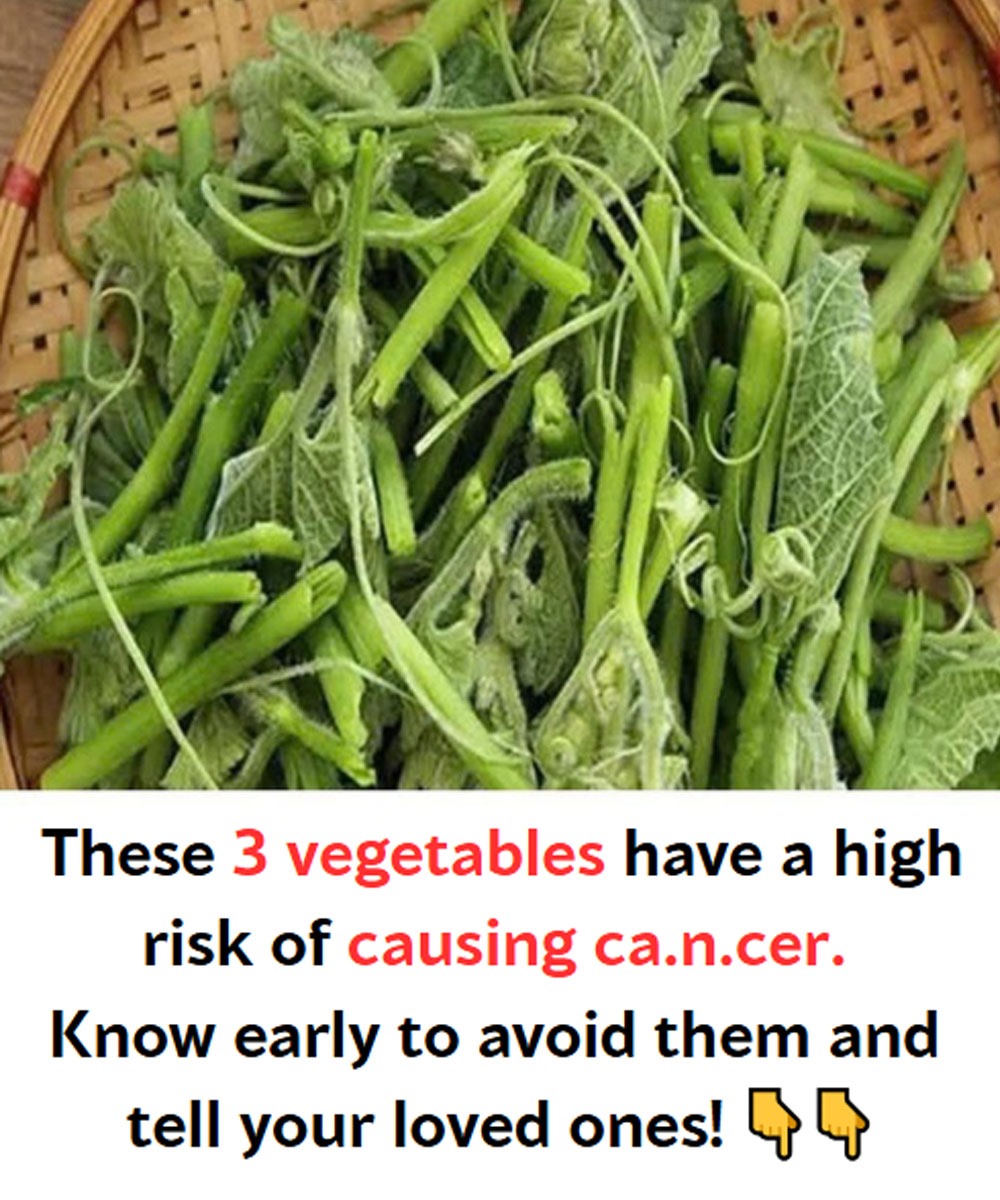Can Some Vegetables Really Cause Cancer? Unmasking the Myths and Knowing the Facts
In the age of social media, we often come across alarming headlines such as:
“These 3 vegetables have a high risk of causing cancer. Know early to avoid them!”
These types of statements, often accompanied by shocking images or bold red text, aim to attract attention—but they may not always be based on truth.
So, what’s the reality behind these claims? Can vegetables—often seen as the cornerstone of a healthy diet—really be harmful? Let’s separate myth from reality using science-backed information.
Vegetables and Cancer: A Complex Relationship
Vegetables are generally protective against cancer, not the cause.
Many studies from the World Health Organization (WHO), the American Institute for Cancer Research (AICR), and the Harvard School of Public Health emphasize the benefits of a plant-based diet.
Vegetables provide:
Antioxidants
Phytochemicals
Vitamins and minerals
These nutrients help prevent DNA damage, reduce inflammation, and support immunity—all of which help lower cancer risk.
Where Did the Fear Come From?
In rare cases, vegetables may pose a cancer risk—but usually due to contamination, improper storage, or processing. These situations are often exaggerated into misleading posts. Here are three real, science-based scenarios:
1. Vegetables with High Pesticide Residue
Leafy greens like spinach, kale, and gourds often top the “Dirty Dozen” list by the Environmental Working Group (EWG) due to pesticide residue.
Some pesticides—such as glyphosate—have been classified as “probably carcinogenic to humans” by the International Agency for Research on Cancer (IARC).
🔹 Prevention Tip:
Wash all vegetables thoroughly. Choose organic versions of high-risk produce. Soak in salt water or a baking soda solution to reduce residue.
2. Pickled or Preserved Vegetables (In Excess)
SEE NEXT PAGE
Can Some Vegetables Really Cause Cancer? Unmasking the Myths and Knowing the Facts
In the age of social media, we often come across alarming headlines such as:
“These 3 vegetables have a high risk of causing cancer. Know early to avoid them!”
These types of statements, often accompanied by shocking images or bold red text, aim to attract attention—but they may not always be based on truth.
So, what’s the reality behind these claims? Can vegetables—often seen as the cornerstone of a healthy diet—really be harmful? Let’s separate myth from reality using science-backed information.
Vegetables and Cancer: A Complex Relationship
Vegetables are generally protective against cancer, not the cause.
Many studies from the World Health Organization (WHO), the American Institute for Cancer Research (AICR), and the Harvard School of Public Health emphasize the benefits of a plant-based diet.
Vegetables provide:
Antioxidants
Phytochemicals
Vitamins and minerals
These nutrients help prevent DNA damage, reduce inflammation, and support immunity—all of which help lower cancer risk.
Where Did the Fear Come From?
In rare cases, vegetables may pose a cancer risk—but usually due to contamination, improper storage, or processing. These situations are often exaggerated into misleading posts. Here are three real, science-based scenarios:
1. Vegetables with High Pesticide Residue
Leafy greens like spinach, kale, and gourds often top the “Dirty Dozen” list by the Environmental Working Group (EWG) due to pesticide residue.
Some pesticides—such as glyphosate—have been classified as “probably carcinogenic to humans” by the International Agency for Research on Cancer (IARC).
🔹 Prevention Tip:
Wash all vegetables thoroughly. Choose organic versions of high-risk produce. Soak in salt water or a baking soda solution to reduce residue.
2. Pickled or Preserved Vegetables (In Excess)
SEE NEXT PAGE
Many studies from the World Health Organization (WHO), the American Institute for Cancer Research (AICR), and the Harvard School of Public Health emphasize the benefits of a plant-based diet.
Wash all vegetables thoroughly. Choose organic versions of high-risk produce. Soak in salt water or a baking soda solution to reduce residue.

